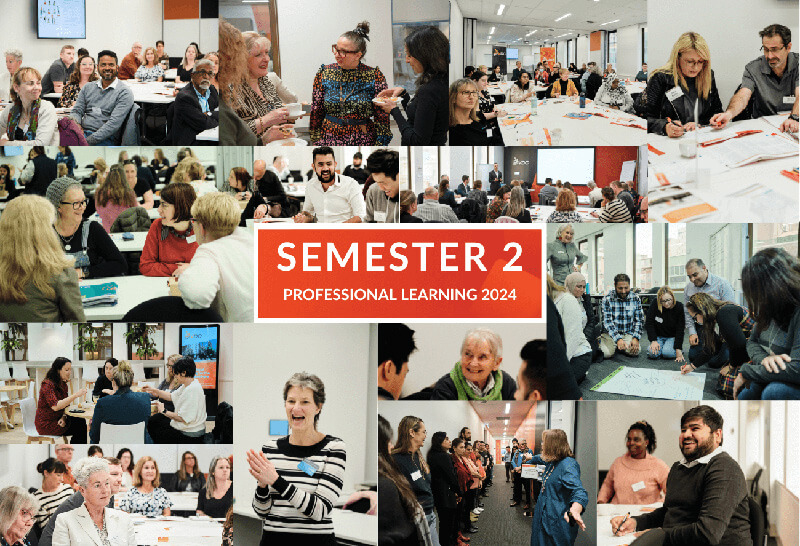With the rise in importance of recognising non-formal and informal learning here in Australia, particularly amongst employers, it’s useful to highlight what the thinking is in Europe. Recently CEDEFOP has published one of its overview papers on this topic.
It highlights the crucial importance of enabling all adults to take part in regular upskilling and reskilling over their working lives and the need to better value their skills. It notes that validation has a key role to play in this, particularly for recognising appropriate non-formal and informal learning. In addition, using effective processes to identify, document and assess “can make skills visible and lead to better decisions regarding recruitment and further skills development of workers.”
Developing effective validation processes
Across Europe validation “is increasingly linked to emerging national policy priorities, through the promotion and integration of validation into different strategies, related to skills and lifelong learning,” often built around the development of national skills strategies. Some countries have developed these while others are in the process. Validation can also be integrated into strategic documents to contribute to meeting policy priorities.
While validation can take a number of forms, often by allowing for some form of certification (in the form of qualifications, partial qualifications, credits or modules) or through exemptions from programs. In addition, there is also a clear trend to expand validation arrangements. However, areas for improvement are highlighted. The paper notes that:
“arrangements may not exist in all subsectors (adult learning, CVET, higher education, IVET or general education) or may not cover all qualifications available in these subsectors, but only some.”
Moreover, the take up of validation opportunities “remains limited” and better data collection is needed, including “data on flows of beneficiaries who have entered, proceeded, and succeeded in different stages of validation [which] is often unavailable. This complicates the evaluation of the impact of validation initiatives.”
And, as the paper points out: “Effective outreach continues to be a challenge regarding certain target groups, and lack of awareness of validation constitutes a major barrier to access.”
The costs of validating these forms of training can also be an issue, particularly if they are borne by applicants for validation.
Getting the ducks in a line
The paper points out that “the institutional framework for validation across countries remains fragmented, involving a mix of public and private bodies with diverse roles and regulations. Most countries lack a robust system for coordination and need improved coordination to enable coherent validation frameworks across sectors. This requires effective quality assurance and monitoring arrangements. It also reports that “only a handful of countries have centralised monitoring systems for validation.” Moreover, the paper argues that better use could be made of digital technologies to assist the validation process.
In addition,
“Legislative frameworks for skills audits are lacking, and there is no common pattern for provision. There is also an absence of formalised and systematic linkages between skills audits and validation processes, except in a small minority of countries where audits are integral to IVET [i.e. initial] and CVET [i.e. continuing].”
The paper defines a skills audit as “a process aimed at identifying and analysing the knowledge, skills and competences of an individual, including his or her aptitudes and motivations in order to define a career project and/or plan a professional reorientation or training project.” Thus, “the aim of a skills audit is to help the individual analyse his/her career background, to self-assess his/her position in the labour environment and to plan a career pathway, or in some cases to prepare for the validation of non-formal or informal learning outcomes.”
National Qualification Frameworks (NQFs) can help
These frameworks can help to promote and facilitate validation. Further, it notes that “NQFs are also helping to increase the legitimacy of non-formal learning and validation, making it clear that even the highest qualification levels can be acquired through validation. Furthermore, NQFs can provide strong quality assurance frameworks for qualifications obtained through the validation process. Indeed, “several countries make efforts to align their validation procedures and certifications with formal education standards, referenced to their respective NQFs” and through reference to occupational profiles.
Thus, “a positive trend is that validation arrangements are increasingly intertwined with NQFs, which provide a structured framework for recognition and are enablers of validation.”
In conclusion…
“Europe has witnessed a noticeable surge in the expansion and consolidation of validation arrangements.” However, “despite this progress in the setting up of validation arrangements, disparities in their availability persist across countries and sectors, and validation is not available for all qualifications and connections between validation in different contexts remain limited. This leads to inequalities in individuals’ opportunities to access validation, and to labour market inefficiencies.”
Validation [also] “tends to be directed towards awarding full or parts of qualifications (in the form of credits, modules or exemptions) and is less common for accessing formal programs. This raises questions about the extent to which validation is fully contributing to its role in widening access to education and training.”








